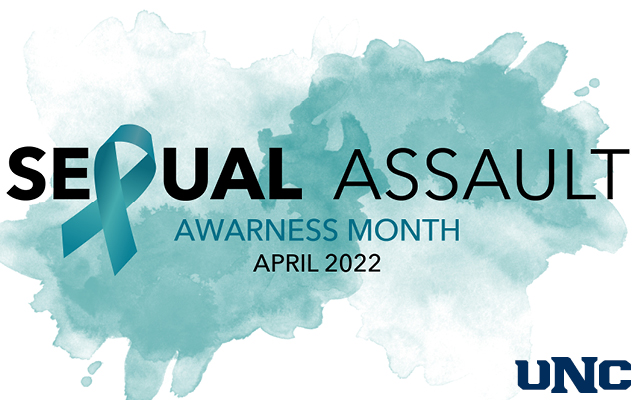This April represents the 21st anniversary of Sexual Assault Awareness Month (SAAM). Original movements around sexual assault prevention began as early as the 1940s and 50s led by women of color as part of race-based and gender-based civil rights. Sexual Assault Awareness Month was first nationally observed in 2001. San Francisco, the location of the first rape crisis center founded in 1971, also held the first ‘Take Back the Night’ event in 1978 as sexual assault activism continued through the 1970s.
The original goal and message of SAAM was to raise awareness of sexual assault, over time prevention education was incorporated to include topics such as healthy sexuality, consent, and bystander intervention. Building on the 2021 theme of safe online spaces during the COVID-19 pandemic, the theme for 2022 is ‘Building Safe Online Spaces Together’ and further focuses on respectful, inclusive, and safe online communities.
Everyone is affected by sexual violence in some way, as a survivor themselves or family or acquaintance of a survivor. Statistics shared by the National Sexual Violence Resource Center (NSVRC) show that it is estimated that 734,630 were raped (threatened, attempted, or completed) in the United States in 2018. The Rape, Abuse & Incest National Network (RAINN) shares that only 25 out of every 1,000 rapists will end up in prison and, equally as impactful, they report that every 68 seconds an American is sexually assaulted.
Please show your support for survivors in the UNC community by attending the events hosted by UNCs Assault Survivors Advocacy Program (ASAP). If you need to explore the services ASAP offers, please know they are a confidential resource. ASAP contact information is 970-351-1490 or Crisis Line: 970-351-4040.
Take Action:
- National Sexual Violence Resource Center (NSVRC) Resources
- Intersectional Justice and Safety from Sexual Violence: Spotlights from a New Report on Health Equity Strategies
- RAINN Programs and Expertise
- Eventbrite: Advocacy and Poetry, Your Voice is Power
- Attach the SAAM design elements to your email signature and/or use it in your social media
For additional education and personal development related to diversity, equity and inclusion, the following resources are available: DEI Education and Resources, DEI & Antiracism Resources from the UNC Libraries, the Education Equity Toolkit from the Colorado Department of Higher Education, and the UNITE workshops for faculty, staff, and students.


